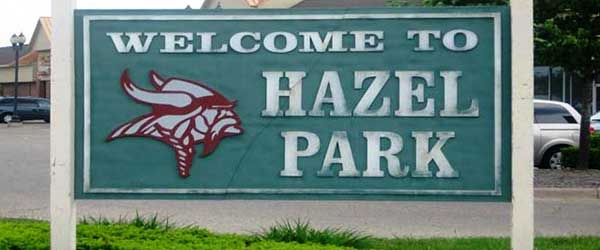While attending the League’s Capital Conference last month, I had the pleasure of sharing breakfast with local officials from Hazel Park, all of whom took a moment to update me on the new and exciting things happening this year in their city. Hazel Park certainly seems to have been the center of encouraging progress over the last year. New restaurant ventures and neighborhood revitalization efforts have drawn attention to the area, and the Congress of New Urbanism has even chosen the city for a charrette program intended to reimagine city buildings, public spaces, streets, and sidewalks.
By all accounts, I’m encouraged by what I see unfolding in Hazel Park. Yet, one singular aspect of my conversation with the city’s local officials stood out among the intriguing developments mentioned above. Hazel Park boasts a politically and ideologically diverse group of local officials, yet Councilman Mike Webb explained emphatically that every individual is dedicated to setting aside their personal convictions in order to make decisions that truly benefit Hazel Park.

But it isn’t. In fact, my shock at Hazel Park’s symbiotic arrangement made it apparent to me that we’ve grown to expect the opposite. In short, this polarization in government is the main reason why a significant (and growing) portion of my generation is decidedly skeptical of politics at all levels, and only one of many reasons why young people (ages 18-35) make up only 6 percent of board and commission members in metro Detroit.
What do Millennials Think of Local Government?
Last year, our friends at the Florida League of Cities conducted a study on my generation and our views of government generally, but local government specifically. This snippet sums up their findings well:
“[Millennials] do not like the bickering or fighting they see in congress, and the whole process generally annoys them. They shied away from the partisanship of government and simply want things to work.”
When summarizing what it is that millennials want and expect from their local governments, the study found that they “want the fundamental elements of government to work. They enjoy local parks, yearn for better mass transit, and generally feel safe in their homes.” Young people want their local governments to progress towards the best possible way of life with the least possible amount of interference, and they want officials to elevate local standards of living above personal political ideology.
Asking municipal officials to display a higher level of responsibility and selflessness than is expected of government on a state or national level seems like a tall order, and indeed it is. But Hazel Park has managed it, and the results are startling. A lot of good things are happening there, and they’re happening because, when necessary, councilmembers and other officials are willing to remind each other to get down off their soap box and get things done.
By any standards, Hazel Park’s revitalization is incredible, but it’s made even more incredible considering the array of obstacles they’ve had to overcome to make this progress happen. They’ve chosen not to let personal political agendas be one of those obstacles, and I would imagine that members of my generation would be encouraged by hearing this.
Why Does Local Government Need Millennials?
Time is moving forward and eventually those currently serving their communities and states in an official capacity will have to retire. If millennials aren’t adequately prepared to step into their complicated roles and take responsibility for their communities, what will happen?
I can imagine that most municipal leaders are not exactly eager for “the selfie generation” to step into positions of influence and take on day-to-day municipal challenges. However, millennials getting involved in local government is better than the alternative – a huge generational void in leadership that leaves cities drastically under-staffed and mismanaged. Millennials bring a high sense of ethics, a thorough understanding of burgeoning technology, an innovative spirit, and an eagerness to have a positive social impact in the workplace – all things from which Michigan’s many communities could only stand to benefit.
Despite these strong attributes, however, the task becomes unnecessarily complicated without the mentorship of today’s leaders. Those currently serving possess a thorough working knowledge of a community’s budget history, municipal strengths and weaknesses, and what a community will need to thrive in the future. It is integral that this knowledge be passed on to those to whom the torch will fall within the next decade. In order for this to happen, however, local officials must make a concentrated effort to celebrate what’s going right in their areas, to better communicate that local politics aren’t necessarily a microcosm of Washingtonian egotism, and to resuscitate millennial interest in government.
I wrote this blog because I don’t think that millennials hear about leaders like those in Hazel Park very often. The polarized, even vindictive nature of Washington-based politics tends to drown out the very good things that are happening locally, and it jades our views towards the political system as a whole.
In short, its a messaging problem.
One of our many city managers in Michigan, in a survey for MLGMA’s rebranding initiative, said this about his local involvement: “I get a real charge from helping people. Sometimes it’s the littlest things we can do to the biggest things. From a falling tree to saving a lost kid – It’s about making lives better.” This idea resonates with my generation, so why dont we hear it more often? Leaders like those in Hazel Park owe it to themselves to be more vocal about their love for their community, for compromise, and for progress, because it might just change a millennial’s mind.
